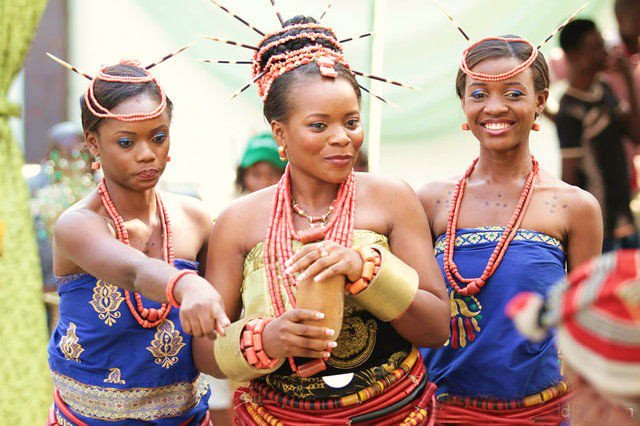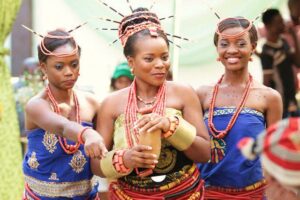
Facts About the Igbo People and Their Ancestors

The Igbo people (also spelled Ibo) are one of Nigeria’s largest ethnic groups, primarily found in the southeastern region. Known for their rich culture, entrepreneurial spirit, and strong sense of identity, the Igbo have a fascinating history. Below are key facts about their origins, traditions, and contributions.
1. Ancient Origins & Early Settlements
-
Nri Kingdom (900 AD): The Igbo trace their roots to the ancient Nri Kingdom, one of the oldest monarchies in West Africa. The Nri people were known for their religious influence and the Eze Nri (divine king).
-
Igbo-Ukwu Civilization (9th Century): Archaeological findings in Igbo-Ukwu revealed advanced bronze artifacts, proving the Igbo had sophisticated metalworking skills before European contact.
-
Migration Theories: Some believe the Igbo migrated from the Nile Valley or Israel (due to cultural similarities with Judaism), but most evidence points to indigenous development.
2. Traditional Society & Governance
-
Stateless Society: Unlike centralized kingdoms (e.g., Benin or Oyo), the Igbo had a decentralized system with autonomous villages governed by:
-
Council of Elders (Ndị Okenye)
-
Assembly of Citizens (Ọha)
-
Secret Societies (Ekpe, Okonko, Ozo)
-
-
The Aro Confederacy (17th–19th Century): A powerful Igbo subgroup, the Aro people, controlled trade and spiritual influence through the Ibini Ukpabi (Long Juju) oracle.
-
Igbo Democracy: The Igbo “Ofo” (symbol of authority) and “Igwe” (voice of the people) ensured checks and balances in leadership.
3. Culture & Traditions
-
Language: The Igbo language (Ásụ̀sụ̀ Ìgbò) has over 20 dialects, with Central Igbo (based on Owerri and Umuahia dialects) being the standard.
-
Religion (Odinala): Traditional Igbo religion worships Chukwu (Supreme God), lesser deities (Alusi), and ancestors (Ndichie).
-
New Yam Festival (Iri Ji): A major celebration marking the harvest season with dances, feasts, and rituals to thank the earth goddess (Ani/Ala).
-
Igbo Art: Known for Mbari houses (sacred art shrines), Uli body paintings, and wooden masks used in festivals.
4. The Igbo in the Transatlantic Slave Trade
-
Slave Resistance: Many Igbo captives rebelled, including the famous Igbo Landing (1803) in Georgia, USA, where enslaved Igbo drowned themselves rather than live in bondage.
-
Cultural Influence: Igbo traditions survived in the Americas, influencing:
-
Haitian Vodou (spiritual practices)
-
Jamaican Patois (words like “unu” meaning “you all”)
-
African-American folklore (tales of the “Flying Africans”)
-
5. Colonial Resistance & the Women’s War (1929)
-
Ekumeku Movement (1883–1914): A secret Igbo militia resisted British rule for over 30 years.
-
Aba Women’s Riot (1929): Thousands of Igbo women protested British taxation, forcing colonial reforms.
6. The Igbo in Modern Nigeria
-
Biafra War (1967–1970): After anti-Igbo pogroms, the Igbo-led Republic of Biafra seceded, leading to a brutal civil war. Over 1 million Igbo died, mostly from starvation.
-
Post-War Resilience: Despite marginalization, the Igbo rebuilt through commerce, education, and diaspora influence.
-
Igbo Diaspora: Millions live abroad, excelling in business (e.g., Nigerian-owned shops worldwide), tech, and academia.
7. Notable Igbo People in History
-
Nnamdi Azikiwe – First President of Nigeria
-
Chinua Achebe – Author of Things Fall Apart
-
Olaudah Equiano – Ex-slave & abolitionist writer
-
Philip Emeagwali – Computer science pioneer
-
Chimamanda Ngozi Adichie – Award-winning novelist
Conclusion
The Igbo people have a deep-rooted history of innovation, resistance, and cultural richness. From ancient bronze casters to modern entrepreneurs, their legacy continues to shape Nigeria and the world.
“Igbo Kwenu!” (A traditional Igbo salute meaning “Hail the Igbo!”)
Thank you for following us incase you find any error in our contents please kindly send us mail or you need additional information you want us to add to any history kindly send us because all what we are posted was generated according to what we see online or we have acknowledged about in this case we can’t perfect in 100% kindly correct us in any aspect you find that’s need.
Noted:- We are not copy from any blog if you fund one your line or content is attach to our post kinky report to our [email protected] and we promise you we are going to rephrase it immediately thanks so much we love you all.
Leave a Reply